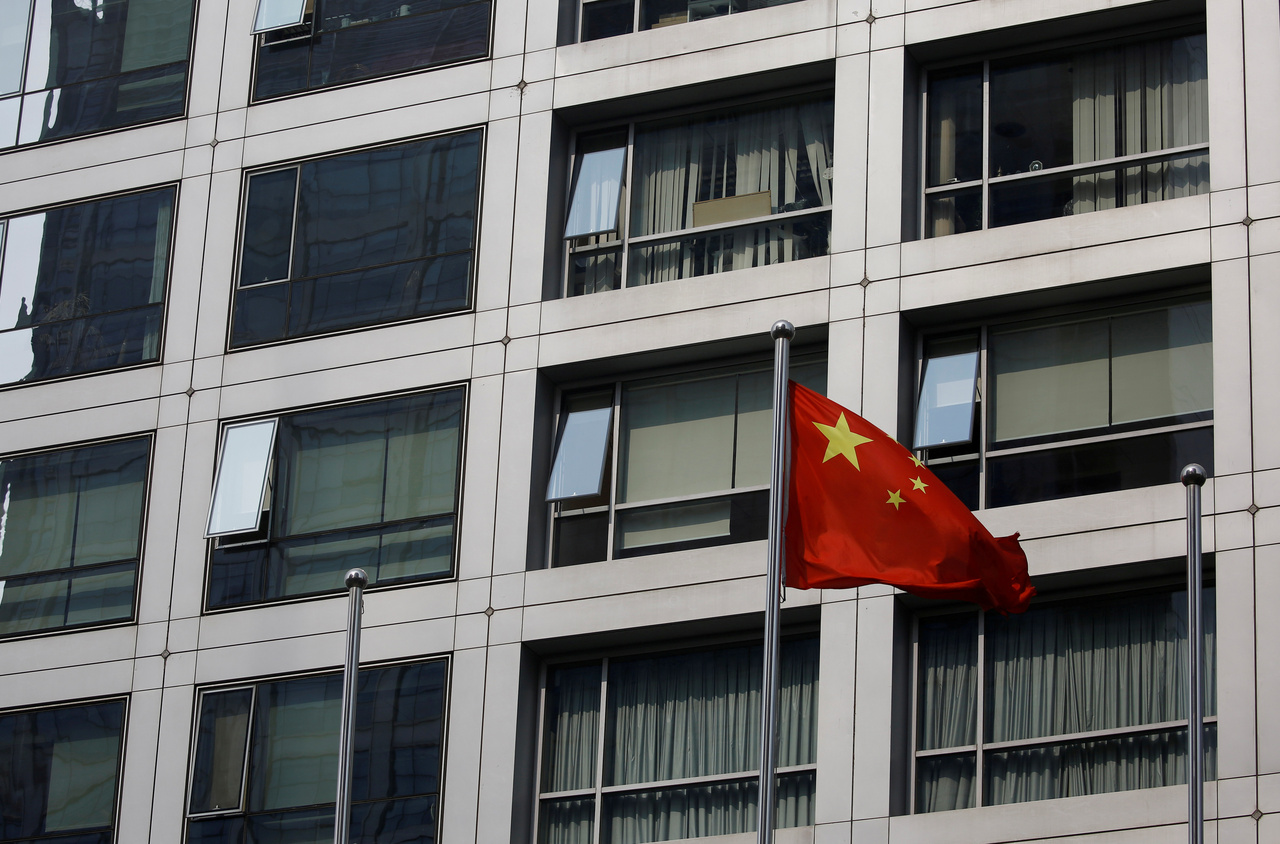Probe into Beijing firm in Taiwan spurs fears of China targeting island's top chip talents
Sign up now: Get ST's newsletters delivered to your inbox

Beijing has pledged to develop its own advanced chip manufacturing.
PHOTO: REUTERS
Follow topic:
TAIPEI (BLOOMBERG) - An investigation into illegal talent poaching by Beijing-based Bitmain Technologies has revived fears that Chinese companies will target Taiwan's top engineers as their country works to build a world-class chipmaking industry.
Investigators descended on the offices of Bitmain's two Taiwan units and interviewed 19 people on Tuesday (March 9) in a probe into whether the crypto-mining start-up had violated local laws, according to Ms Chang Jui-chuan, a spokesman for the New Taipei District Prosecutor's Office.
The Chinese firm, which develops semiconductors for mining and other purposes, is suspected of illegally recruiting hundreds of engineers from Taiwanese firms over a period of three years.
Taiwan prohibits companies from China from doing business or recruiting locally without prior approval, a measure intended to limit the influence of its political rival.
The accusations against Bitmain spur concerns that Chinese firms will accelerate efforts to hire away Taiwan's best engineers in a bid to achieve semiconductor self-sufficiency.
Beijing has pledged to develop its own advanced chip manufacturing in order to dominate future technologies and cut its dependence on US$300 billion (S$404 billion) of annual semiconductor imports.
Taiwan's deep pool of expertise revolves around Taiwan Semiconductor Manufacturing Co, the world's leading chip fabricator and a supplier to most American tech giants from Apple to Nvidia. US and European companies such as Alphabet's Google and ASML Holding have set up engineering hubs and research bases to tap local talent.
"China's poaching of Taiwanese engineers undermines Taiwan's semiconductor industry," said law professor Carol Lin at the Hsinchu-based National Chiao Tung University, which is now part of the newly formed National Yang Ming Chiao Tung University.
"Through the manoeuvre, Chinese competitors can learn about Taiwan companies' progress. If these engineers bring trade secrets with them, Chinese rivals can have a firm grasp of Taiwan companies' past success and failure in technological developments, and this could result in unfair competition and even endanger national security," she said.
Beijing has denied Washington's claims that it demands technology or talent transfers, or targets the intellectual property of overseas firms.
Bitmain representatives did not respond to multiple requests for comment.
The company's actions are suspected of breaching Taiwan's Act Governing Relations between the People of the Taiwan Area and the Mainland Area, Ms Chang said. An article in the Act stipulates that for-profit Chinese firms cannot set up units in Taiwan and conduct business activities - including headhunting - without approval from Taiwanese authorities, she added.
Wooing away talents
A separate press statement from Ms Chang's office, while not identifying Bitmain by name, shed light on the allegations.
In order to develop artificial intelligence chips, the Chinese start-up created a new entity in China with a Taiwanese engineer as chairman.
This engineer then recruited colleagues from his former company in Taiwan and formed a headhunting team to set up a research and development centre in Taiwan, according to the statement.
Ms Chang confirmed that the company in the press release was Bitmain.
The team offered potential recruits double their existing salaries and advertised openly on Taiwanese job sites, the prosecutors said.
The country's top chip designer, MediaTek, a major rival to Qualcomm, was affected by Bitmain's recruitment drive, Taiwan's Apple Daily reported. A MediaTek representative declined to comment.
Taiwanese executives have accused Chinese rivals of aggressive poaching for years. In 2018, Taiwanese DRAM maker Nanya Technology president Lee Pei-ing said some of his engineers were being offered three to five times their current salaries by Chinese competitors. The typical practice was to first lure away a manager who would then go on to recruit more of his former colleagues, according to Mr Lee.
Technology theft
Beyond talent poaching, global firms with operations in Taiwan and local officials have accused Chinese companies of technology theft.
In 2019, Taiwanese prosecutors charged five people for leaking tech belonging to German chemical maker BASF to Jiangyin Jianghua Microelectronics Materials, while Micron Technology has sued Taiwan's United Microelectronics and its Chinese partner Fujian Jinhua Integrated Circuit for stealing trade secrets. Both Chinese companies have denied wrongdoing.
Bitmain, the world's largest crypto-mining equipment maker, has over the years tried to expand into artificial intelligence chipmaking to cushion Bitcoin's volatility, but the strategy divided its management. The company relies on TSMC's foundry for semiconductor production.

